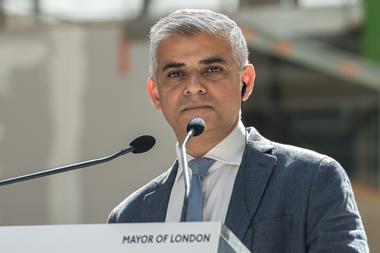This week saw the dramatic return of a face we thought we’d seen the last of. Alas I am not talking about the nostalgic return of David Tennant to the role of Doctor Who, after a gap of more than 12 years.

And mercifully we have been spared the resumption of Boris Johnson’s peculiar version of leadership, after a seven-week break.
Scientists postulate that parallel universes exist in which even the most unlikely outcomes occur. If this many-worlds theory is indeed true, we can be grateful that our current selves exist in a branch of the multiverse where Boris’s triumphant return to No 10 – amid widespread celebrations and unanimous applause – played out only in his mop-topped head.
Nonetheless, our universe does play dice, and tricks us with its unexpected rolls. Who would have bet on Suella Braverman’s boomerang return to the Home Office, less than a week after her ejection for breaching the Ministerial Code? And not many foresaw the regeneration of the secretary of state for levelling up, housing and communities back into the familiar shape of Michael Gove, after briefly taking on the guise of Greg Clark and Simon Clarke in the past few months.
With Tennant back in the Tardis, we know roughly what to expect – lots of frantic running about, pseudo-scientific gobbledegook, implacable foes and shouting – and similarly we can make a few safe stabs at what Gove will do now he is back in his former haunt.
Assuming he takes up where he left off in July, Gove will resume beating up developers and landlords to extract payment for building safety improvements. The first steps in legal action against a building owner may have commenced under Clarke, but he was simply making good on menaces first aired by Gove.
We might also assume the rejuvenated housing secretary will resume pushing the Levelling-up and Regeneration Bill through parliament, complete with its centralist approach to planning policy and divisive ‘street votes’. Any promise of a progressive new approach to building, to grease the rusty wheels of the planning approvals process, vanished along with Liz Truss’s briefly burning star.
Gove has also voiced opposition to his party’s manifesto target of 300,000 new homes a year, suggesting in May that “beauty” was more important than “arithmetic” when delivering new residential developments.
We might also anticipate more direct intervention in politically charged schemes. The date of Gove’s reappointment coincided with the start of a public inquiry into the redevelopment of the M&S store on London’s Oxford Street – a planning application he had called in back in June.
Gove also halted the bulldozers at the ITV site on the South Bank, with his successor Clark duly confirming that the scheme would also be scrutinised via a public inquiry. And in 2021 Gove threw out plans for the ambitious cotton-bud-shaped Tulip tower in the City.
In these and other interventions, our reinstated levelling-up secretary has demonstrated his self-belief and reforming zeal. Some will applaud his return, figuring that those changes he drives will at least shake out new opportunities. Others will shake their heads instead, at the likely resumption of policies that seem destined to stifle development.
But take heart. Elsewhere in the multiverse there may be infinite worlds where events have gone much better, but there must be a few where things are even worse.





























No comments yet